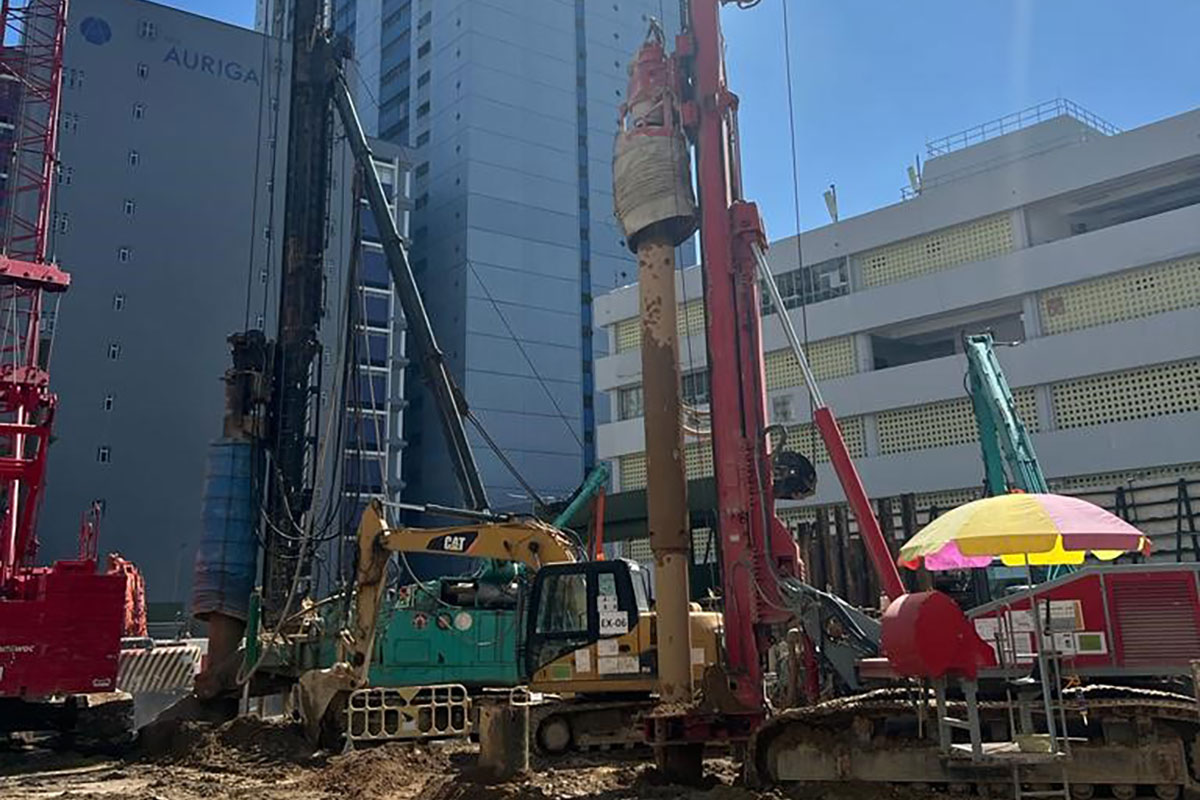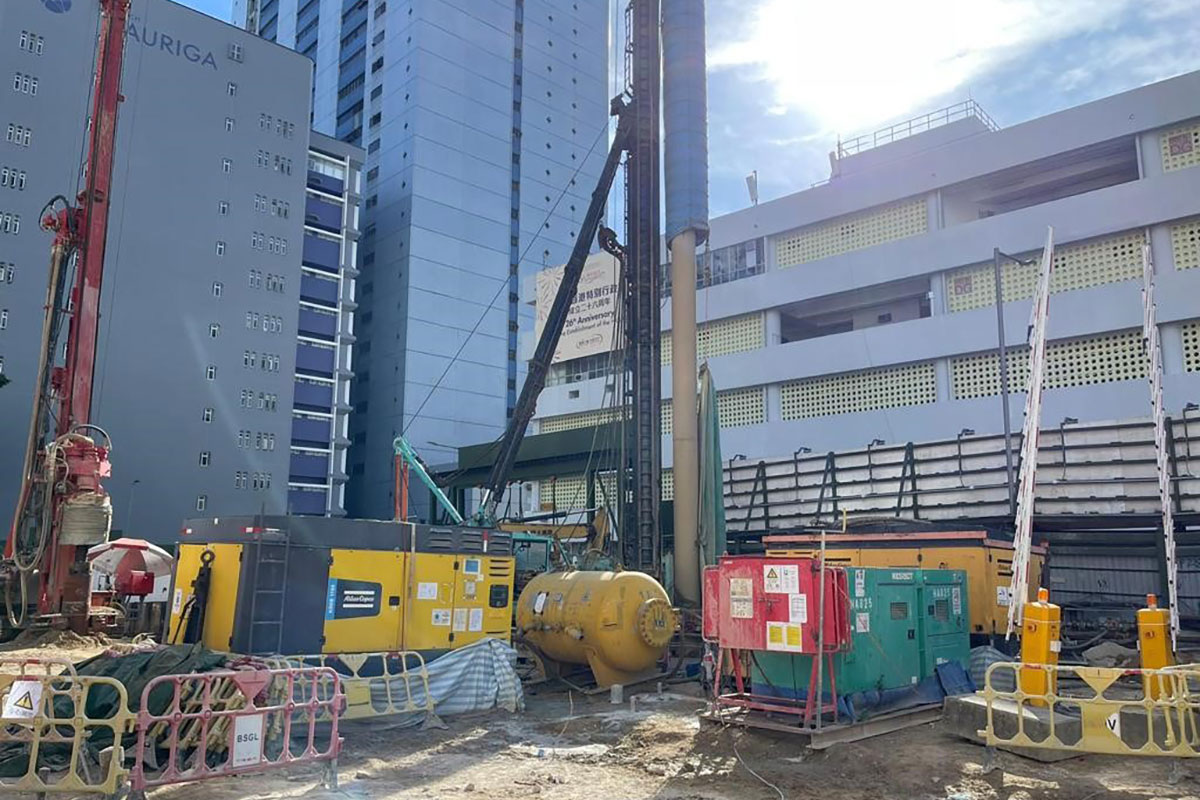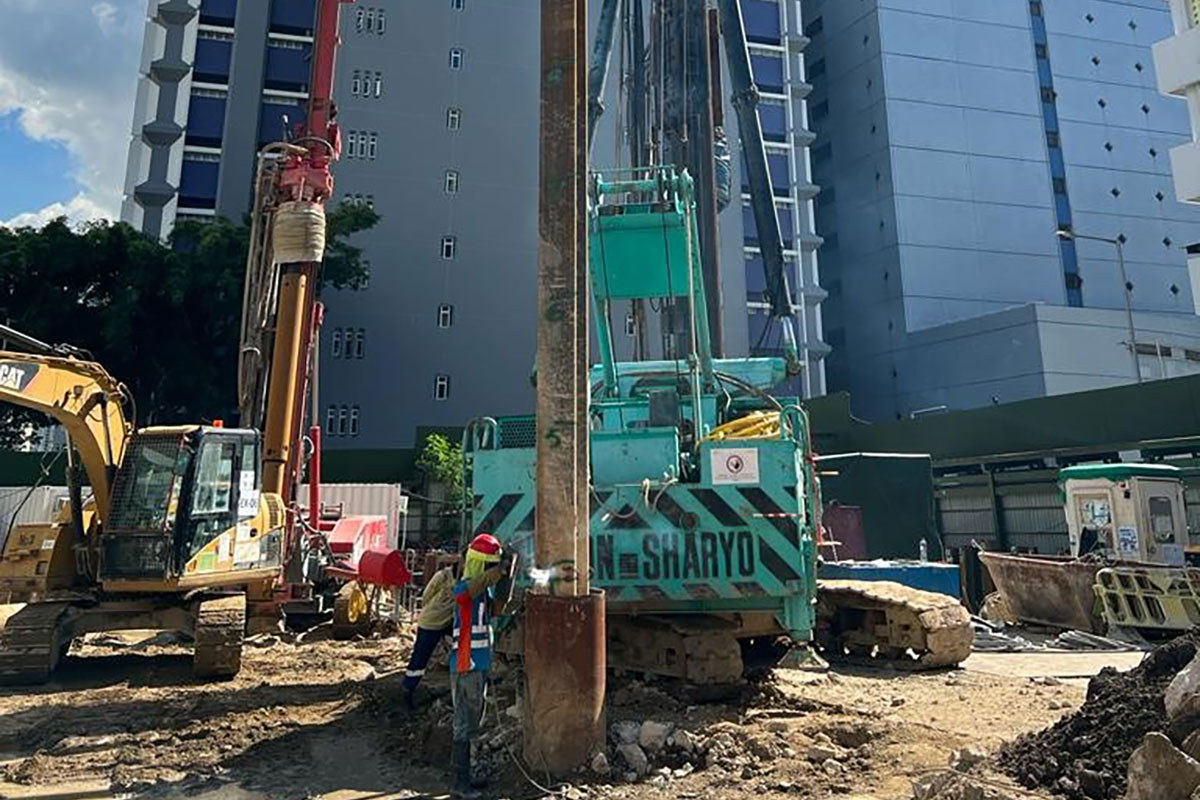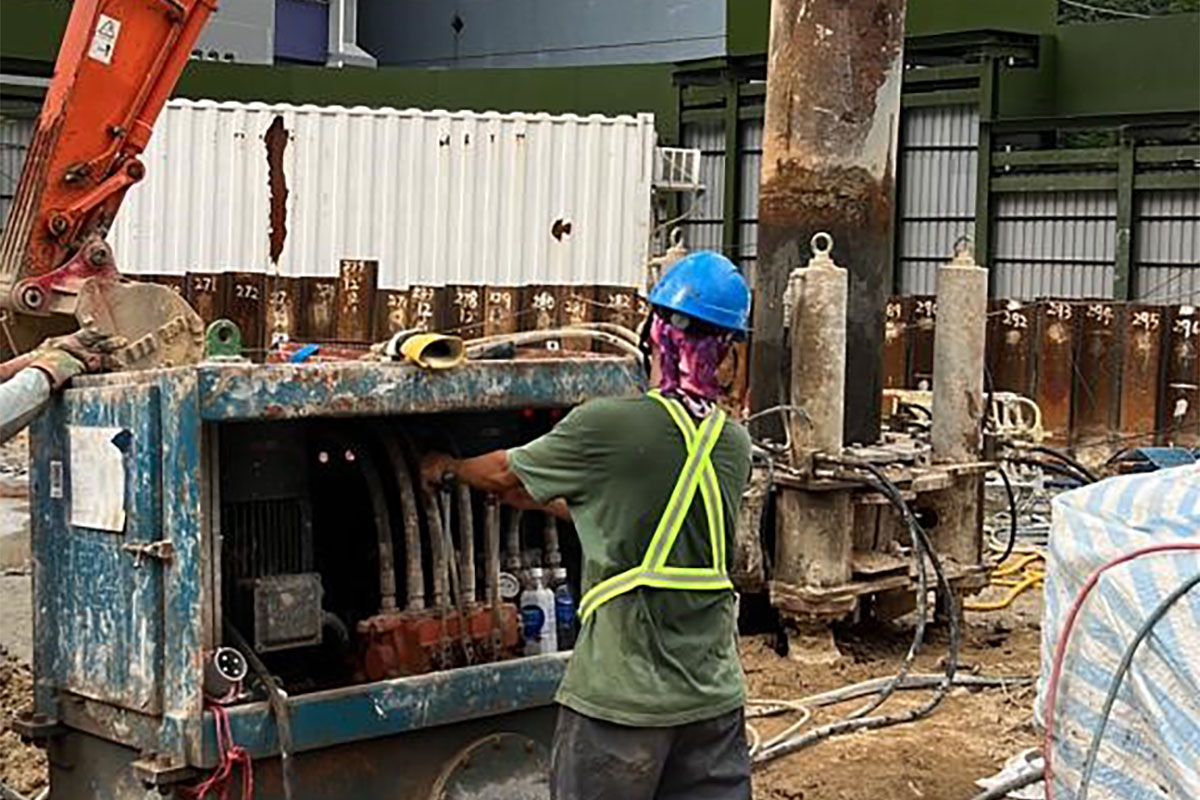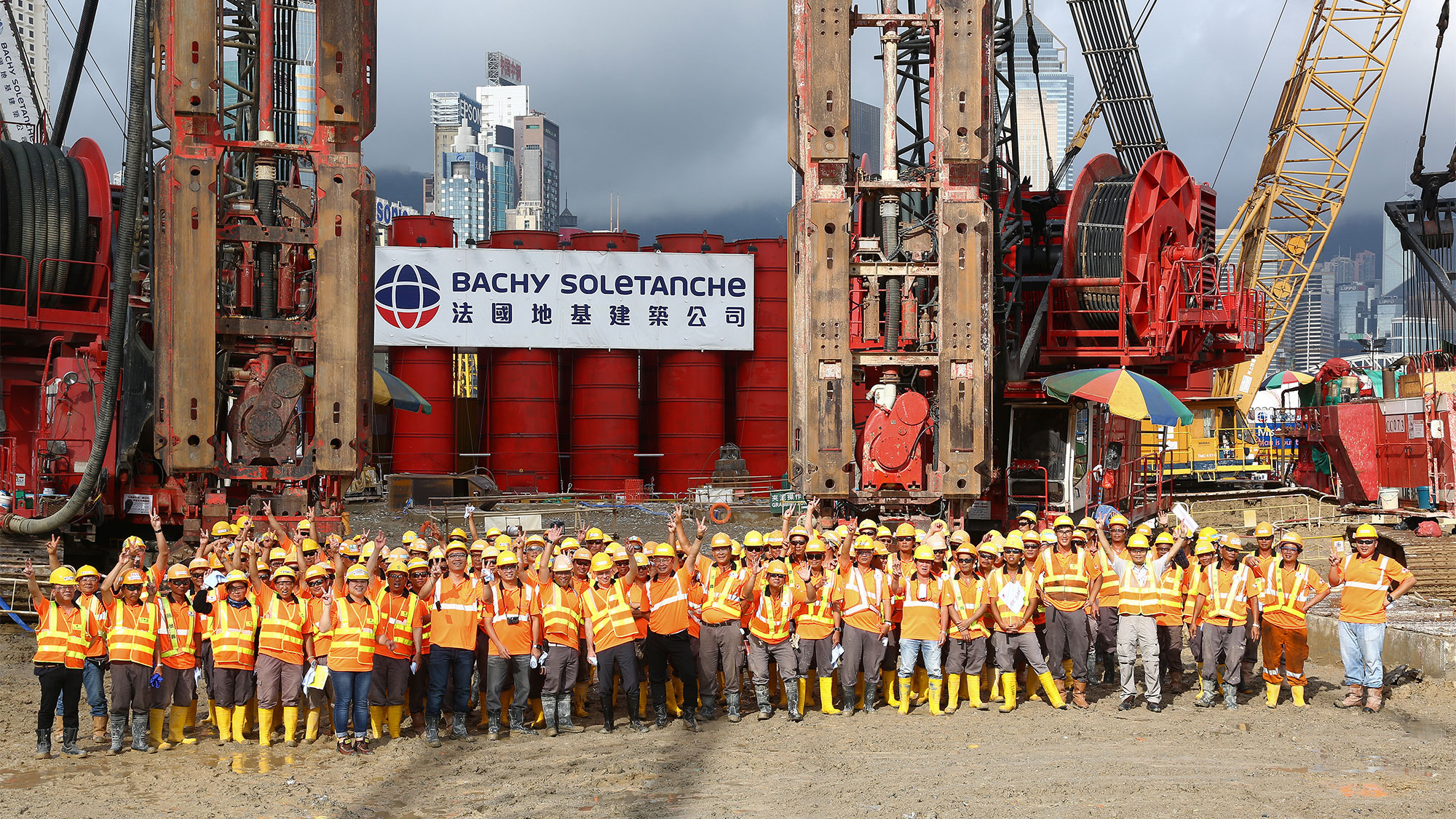Introduction
Socket-type steel I-piles are small-diameter piles. They consist of a steel I-beam installed in a round hole filled with cement slurry. Typical pile diameter is 610 mm, but 813 mm is also used.
A characteristic of socket-type steel I-piles is that their load capacity comes entirely from lateral friction with the rock, since their end load forces are not utilized. Socket-type steel I-piles are mainly used for the foundation of non-heavy buildings such as pedestrian bridges.
General construction process
Installation of socket-type steel I-piles is performed by using a hydraulic drill to create pre-drilled holes in the soil and rock. Temporary steel casing will be installed below grade to support unstable strata and ensure ground/working platform safety. The pre-drilling adopts the “overburden drilling method” (underground gun technology). The technology works on different geology, including boulders and solid rock.
After completing the pre-drilling, the following processes will be carried out.
1: Change the water and clean the bottom of the pile,
2: Install the steel I-beam,
3: Use the conduit method to backfill the pre-drilled holes with non-shrinkage cement slurry.
4: Remove the temporary steel casing.



